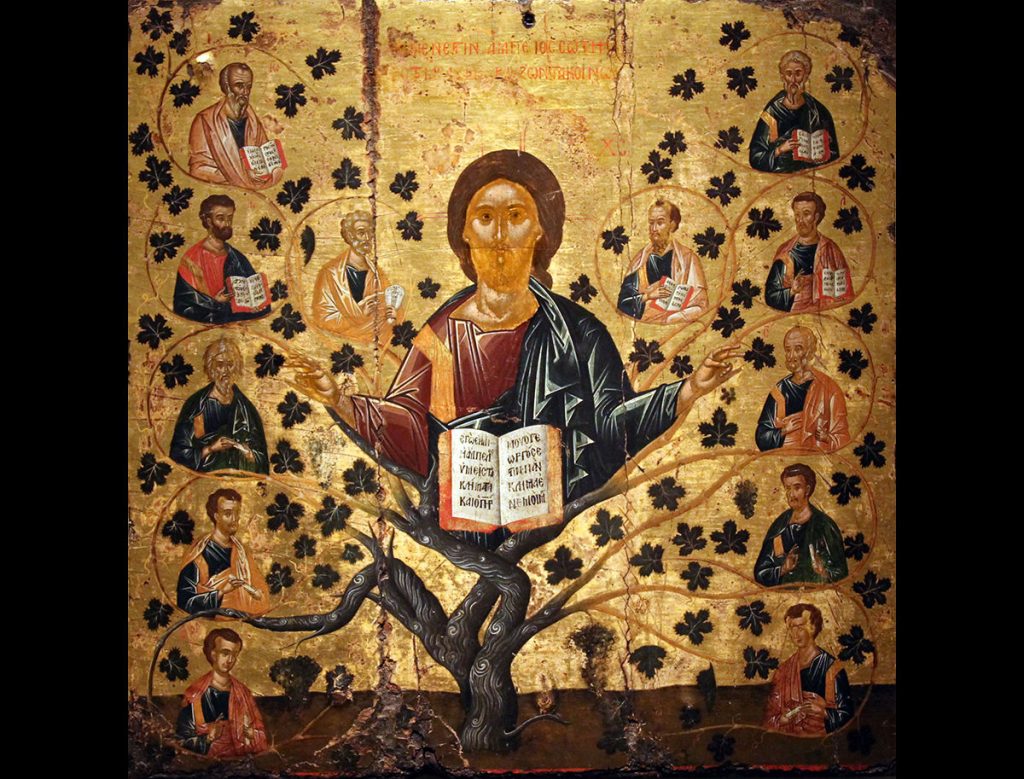In this week’s Gospel Jesus returns to the Old Testament symbol of the vineyard to teach about Israel, the Church and the kingdom of God. And the symbolism of the First Reading and Psalm is also readily understood.
God is the owner and the house of Israel is the vineyard. A cherished vine, Israel was plucked from Egypt and transplanted in a fertile land specially spaded and prepared by God, hedged about by the city walls of Jerusalem, watched over by the towering temple. But the vineyard produced no good grapes for the wine, a symbol for the holy lives God wanted for his people. So God allowed his vineyard to be overrun by foreign invaders, as Isaiah foresees in the First Reading.
Jesus picks up the story where Isaiah leaves off, even using Isaiah’s words to describe the vineyard’s winepress, hedge and watchtower. Israel’s religious leaders, the tenants in his parable, have learned nothing from Isaiah or Israel’s past. Instead of producing good fruits, they’ve killed the owner’s servants, who the prophets sent to gather the harvest of faithful souls.
In a dark foreshadowing of his own crucifixion outside Jerusalem, Jesus says the tenants’ final outrage will be to seize the owner’s son and to kill him outside the vineyard walls. For this, the vineyard, which Jesus calls the kingdom of God, will be taken away and given to new tenants — the leaders of the Church, who will produce its fruit.
We are each a vine in the Lord’s vineyard, grafted onto the true vine of Christ (see John 15:1-8), called to bear fruits of the righteousness in him (see Philippians 1:11) and to be the “first fruits” of a new creation (see James 1:18). We need to take care that we don’t let ourselves be overgrown with the thorns and briers of worldly anxiety. As today’s Epistle advises, we need to fill our hearts and minds with noble intentions and virtuous deeds, rejoicing always that the Lord is near.
Scott Hahn is founder of the St. Paul Center for Biblical Theology, stpaulcenter.com.

